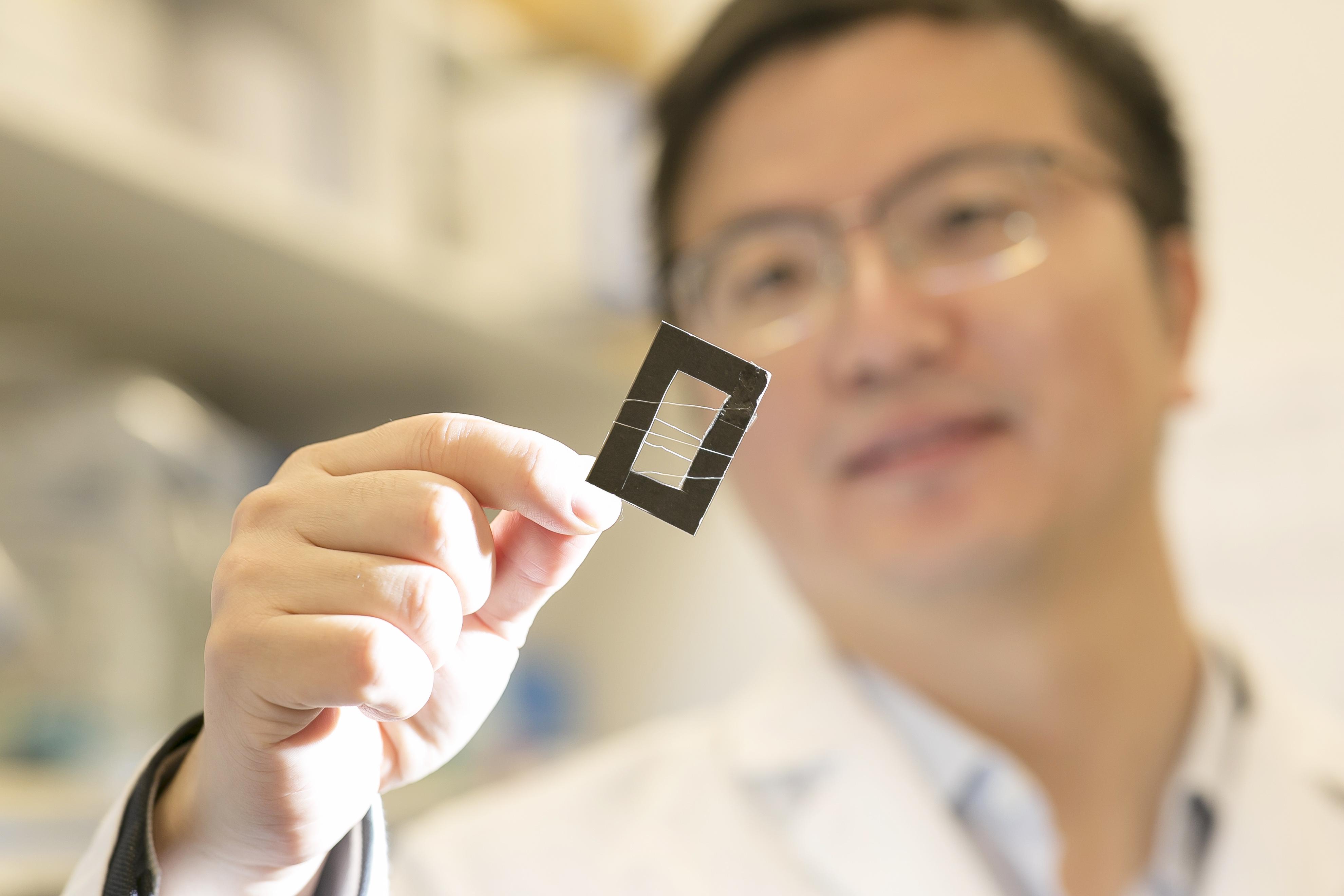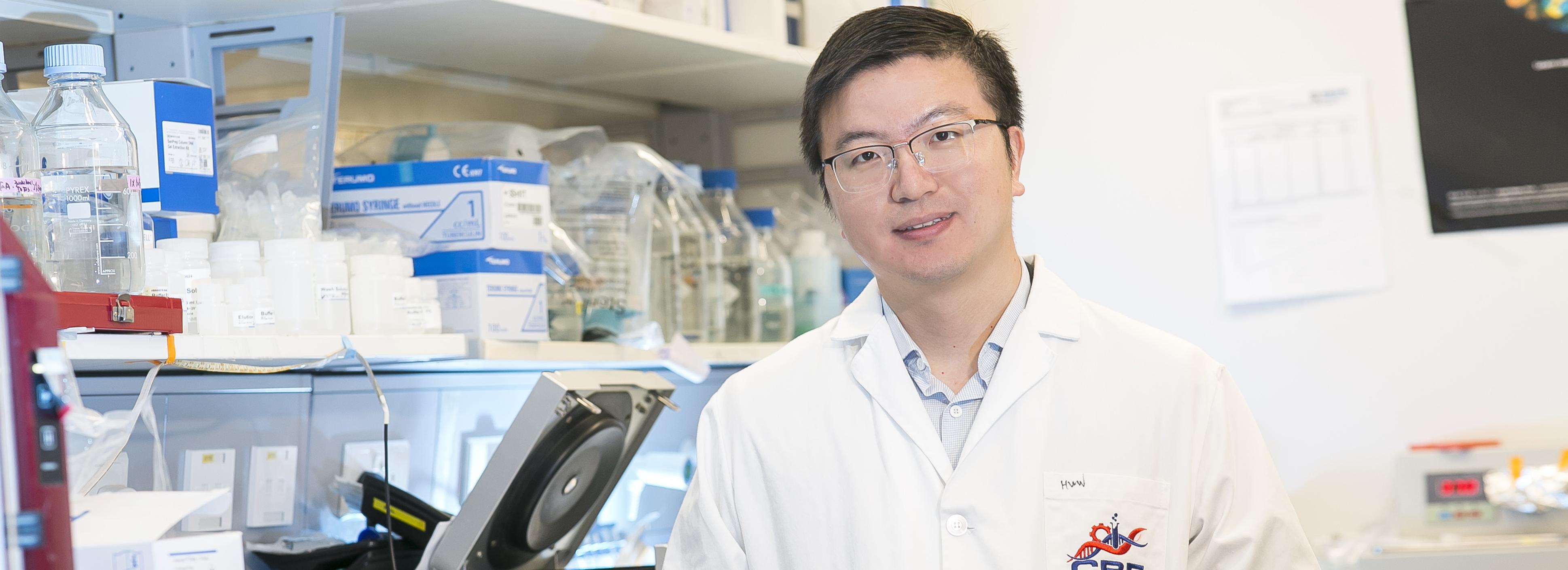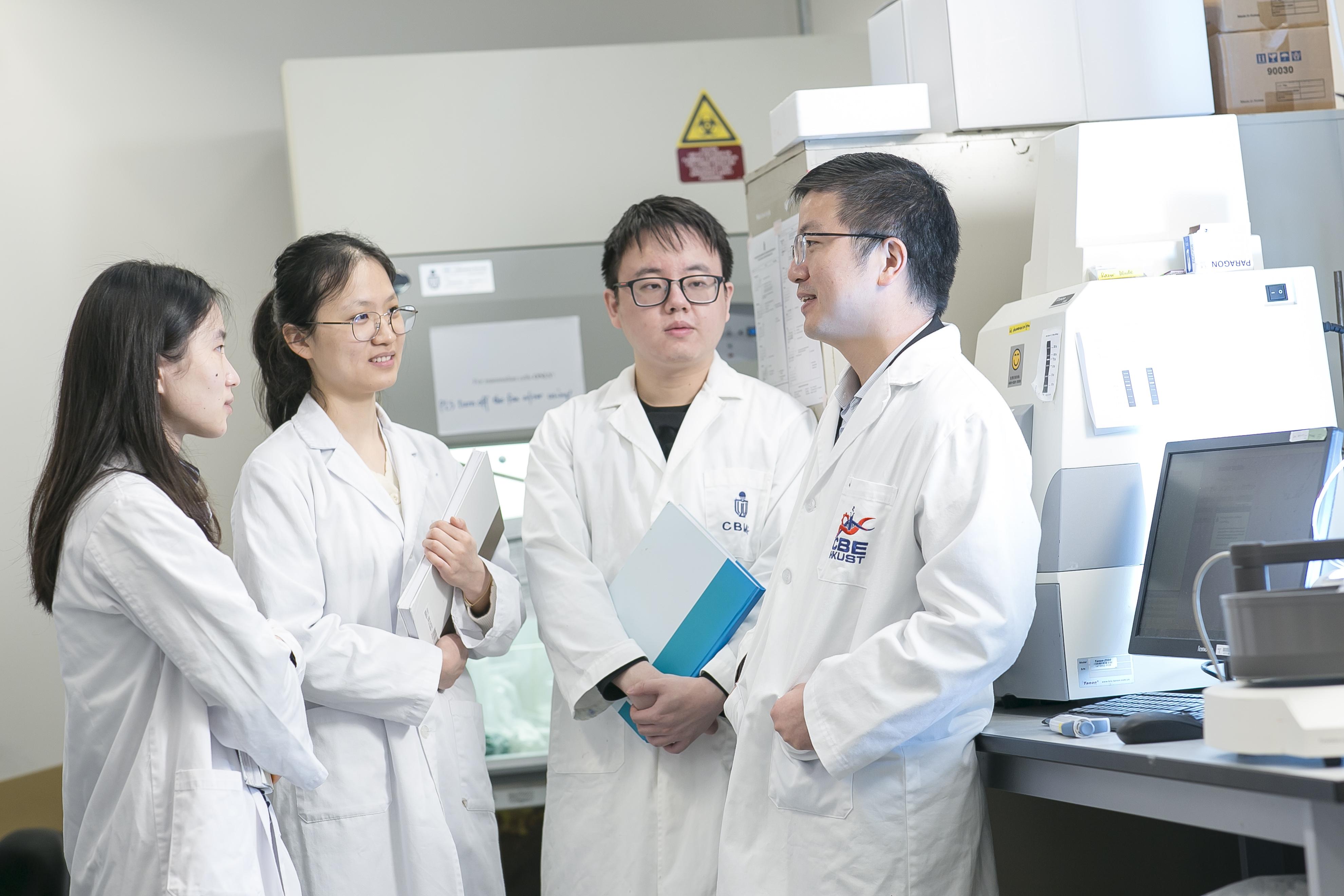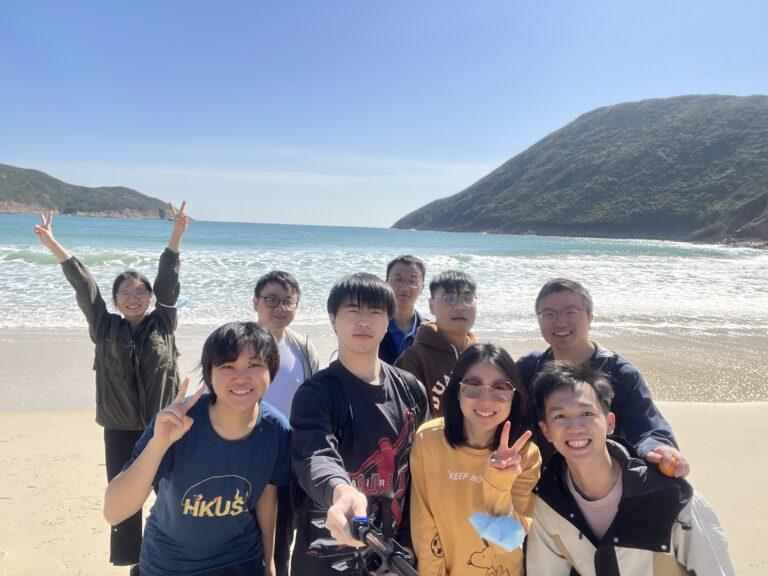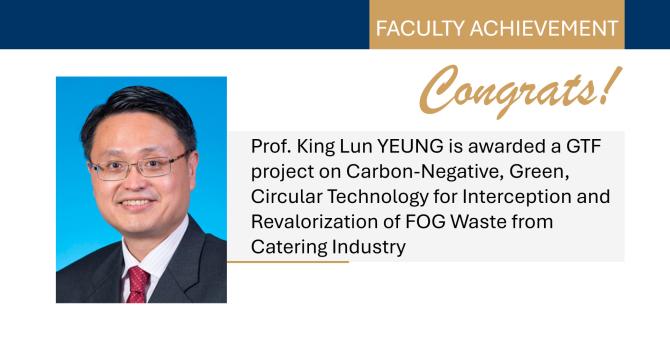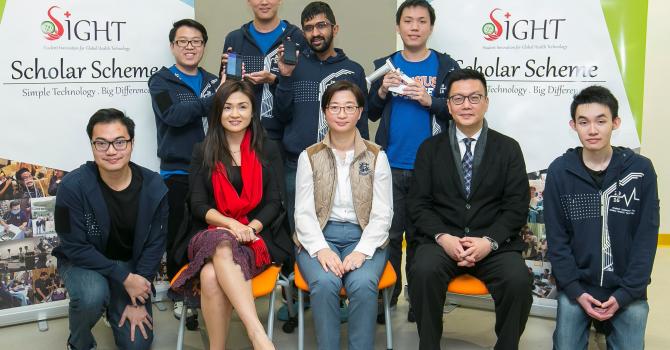Prof. Fei SUN, the Versatile Scientist who Enjoys Creating Things
Having invented a protein-based stimuli-responsive smart hydrogel with potentials for drug delivery and stem cell therapy, NSFC Excellent Young Scientist and Associate Professor of Chemical and Biological Engineering Prof. SUN Fei has such a passion for creating things that he is now trying out silk – not ancient China’s silk from worms, but steel-like silk from spiders with the potential for drug delivery.
To be versatile
Born and bred in the late 1980s in the beautiful and tranquil countryside of Yancheng, Jiangsu province known for its ancient Chinese culture, Prof. Sun was a carefree kid who played in the backyard with his peers. There was one thing that set him apart however – he was a curious child who had been in love with reading since a young age. He would read books about Chinese literature, history, natural science, social science, novels, newspapers, or “anything printed, unselectively” in his own words. Thanks to his parents who tried to find all sorts of printed materials to feed his hunger for knowledge, he first came across science through the popular science book series One Hundred Thousand Whys(《十萬個為甚麼》)when he was around seven. By the time he was 12 years old, he used his pocket money to buy the translated version of Stephen Hawking’s A Brief History of Time, the key that opened the world of physics for him with fascinating ideas such as time travel, fourth dimension, time arrow, black hole, the second law of thermodynamics and so on.
“Reading a good book is the way to get inspired and to develop an interest in a particular area,” he said. To this day, he is still reading books about history, philosophy and the like.
As a youngster, Prof. Sun always came top in class and repeatedly won provincial competitions in physics, chemistry, and mathematics. Being promoted to the reputational Suzhou Experimental High School which was affiliated with Nanjing University, and achieving full scores for chemistry in China’s National College Entrance Examination, the young Sun entered the prestigious Peking University to study chemistry in 2003. Interestingly, his second and third choices were history and international relations respectively in the same university, again demonstrating the wide range of interest of the inquisitive intellectual. There, he continued to win first prize in a college physics competition, and as well as other awards and scholarships.
The young Sun had intensive research experience working with postgraduate students in Peking University’s research labs since the second year of undergraduate studies, which gave him a good grasp of organic chemistry. For two full years, he worked on experiments in natural product organic synthesis to synthesize an organic compound that was discovered in nature and proven useful for medical treatment. The entire project involved 29 steps of reactions. “It was an honor to be able to participate in such a big project with postgraduate students when I was so young,” he said. He went on to conduct his final year thesis on related topics and was awarded the President’s Undergraduate Research Fellowship at Peking University.
He continued to reach new heights as he pursued PhD in Chemistry at the University of Chicago under supervisor Prof. HE Chuan starting from 2007, and then from 2012 to 2014 postdoctoral studies in chemical engineering at the California Institute of Technology (Caltech) under Prof. Frances H. ARNOLD, 2018 Nobel Laureate in Chemistry.
At the top US universities, Prof. Sun sought every opportunity to make friends with people from all walks of life and nationalities, share knowledge, get inspired, and develop people skills. “Caltech and HKUST are quite similar as students and professors are wonderful and willing to share. It is mutual. You can chat with people casually for half a day. Sometimes, good ideas need a spark; it may come from your students or your colleagues next door. An inclusive and intellectual culture is very important.”
Prof. Sun’s biggest takeaway from Caltech is the need to be versatile. With the belief that listening to people and maintaining open minds are crucial for scholars to achieve versatility, he likes to quote the Confucian saying “君子不器” that stresses the importance of embracing new knowledge and always getting ready for change.
Passion for making things with immediate impact
Similarly, he is attracted to chemistry because of the love of creating new things. “Chemistry is about combining theoretical knowledge and the skills of making things to achieve immediate, real-life impact. Making and transforming things are what we Chinese are good at, and we have been an industrial powerhouse for thousands of years. Silk, paper, and porcelain invented in ancient China are all about chemistry. Silk is a protein material that can be organized into elastic, beautiful materials. Paper, invented during the Han Dynasty, involved oxidation to get rid of color pigments. Porcelain changes color during the production process. It is only very recently that modern chemists can explain these procedures and protocols,” he said.
With what are known as material science, synthetic biology, and genetic engineering in modern science, Prof. Sun and his team are making what our ancestors had made – silk – yet not with worms but with spiders. “Spider silk, or what some people call ‘biological steel’, is strong and stable. Unlike worm silk that can be mass-produced for clothing, spider silk can potentially be used as a delivery device for drugs to help axon and bone regeneration and involves a more complicated production process.” With a lab now capable of producing spider’s weaving webs, his team is working on new protein engineering strategies to functionalize spider silk materials and has filed a provisional patent in the US.
The innovative inventor believes the process of creating things is an exploration. “We researchers just try to have fun, enjoy the process and the freedom to explore. We test our interesting ideas, yet we will have to wait and see whether they can generate real-world impact. We are happy if there are downstream applications, but if there is none it is also fine with us. We are neither overly ambitious nor trying to solve global challenges on our own, as those always involve collective efforts. We just enjoy making the first part of it, provide options and our unique angles to the community,” he stated. “I enjoy exploration very much.”
Exploring the unknown after achieving success in hydrogel
Enjoying and doing his part, Prof. Sun has reaped fabulous results. He and his team have developed a smart hydrogel that may act as carriers for stem cells, which are in turn key components for regenerative medicine. Whereas traditional hydrogels made up of synthetic polymers or biological extracts may cause allergies, his smart hydrogel is made from a synthesis that relies solely on bacterial culturing and thus resembles human tissues in the hope of minimizing allergies and body rejection. As a drug carrier, his photo-responsive hydrogel may quickly switch from solid to liquid upon light exposure and may allow drugs to be released into the body in a controlled manner. “In theory, it can promote healing of damaged organs to provide options for patients other than organ transplantation,” he noted.
With strong research performance, Prof. Sun has been named Excellent Young Scientist (EYS) by the National Natural Science Foundation of China (NSFC) in 2021. The EYS scheme, recognizing promising young scholars (under 38 for male and under 40 for female) with achieved results in fundamental research, facilitates them to pursue innovative research in new areas with a three-year research grant.
“With the grant that provides early career researchers with financial safety to explore new ideas, I am trying something risky. One direction is to explore the feasibility of using genetically engineered single cells as building blocks to create functional living materials, which can grow, self-propagate and self-heal.” He continued, “As researchers, we always try out new, risky ideas. We explore the unknown, the unanswered, and the unfinished. Often we are more excited about unexpected outcomes than expected ones. If everything works as we expect, there would not be much fun. In universities, we can work on blue-sky topics.”
Inspiring one another
“The best education takes place in the lab where students are motivated to identify and solve problems,” noted Prof. Sun who emphasizes that researchers are often led by problems and driven by curiosity. “What I want to see in my students is the ability to identify problems and come up with solutions.” Rather than pushing students to publish, he considers it more important that they find their identities and research that is conceptually new.
Whereas many professors would have mentioned that they joined HKUST because there were first-rate faculty members, Prof. Sun said he came as he wanted to go to the place where outstanding students go. “HKUST is able to attract good students, and people are the most important. This was what Prof. Frances Arnold told me – to find good students, you have to go to the place where they go.”
He sees himself providing the platform and expects students to inspire one other, be motivated, and become self-reliant. He quotes Chinese sayings to demonstrate the importance of learning from other people(三人行,必有我師), as well as the fact that students are not necessarily of lower ability than teachers and teachers are not always more competent than their students(弟子不必不如師,師不必賢於弟子).
To him, HKUST is like the Arcadia with a superb environment for intellectual exchange in addition to raising his family and children.
Considering young students to be the future of this community, he hopes the University can provide more resources to underprivileged students so that they realize their dreams. To students who are sometimes emotionally disturbed, he advises that they read more, acquire more input, and not be self-obsessed. “Just as Leo TOLSTOY pointed out, the best warriors are time and patience. Sometimes we have to take things slowly and they will work out.”
More importantly, he advises students to stay versatile and true to their initial passions. “Learn from people regardless of their background. Talk to whoever you may come across and be ready to share stories with each other.”
Related link:
- SENG news (August 30, 2021): Prof. SUN Fei Named Excellent Young Scientist by National Natural Science Foundation of China
